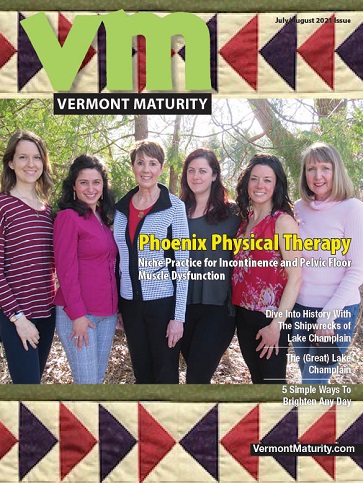
Older workers often wonder how up front they should be about their age when applying for jobs. After all, “jobs for old people” isn’t usually a specific category on job boards, so you’re most likely competing with workers of all ages.
Can you compete with younger job seekers? Of course, you can.
To succeed, you need to prove that you will be a good investment if hired. So, focus on the ways you can add value to an organization instead of focusing on your years of work history. (In fact, try to avoid saying things like “decades of experience.”) Also, don’t underestimate yourself or make jokes about your age in an interview.
Although every job is different, employment experts agree on the following steps for finding a job as an older person.
Finding Jobs
Due Diligence is Important
When searching for potential jobs, be skeptical of companies that claim to offer work-at-home-jobs for retirees, especially if they sound too good to be true. Sometimes, these job postings are fraudulent, so approach vague ads with caution. You don’t want to be a target for elder fraud.
Network, Network, Network
Using your personal connections is a great way to find the best jobs people of any age, even seniors. Over 60 percent of open jobs are filled through networking, so getting a job often comes down to who you know and not being afraid to contact them. Make sure the people in your life are aware that you’re looking for a job. They may assume you are no longer interested in working, especially if you are already retired.
Creating a Resume
Focus on Recent Events
In today’s fast-changing world, jobs or activities from more than 10-15 years ago often aren’t relevant. Plus, listing older jobs calls attention to your age. You can make exceptions for truly relevant past positions or impressive accomplishments, but in general, you don’t need to include jobs from long ago.
Do Not Date Yourself
Potential employers don’t need to know that you wrote your college term papers on a typewriter instead of a computer. In other words, unless your education was completed in the recent past, you should leave graduation dates off your resume.
Be Tech Savvy
One of the top concerns HR managers have regarding older workers is that they may not keep up with technology. If your job will involve any computer work, highlight your tech strengths. And make sure your email address is professional. (A Gmail address is easy to get and is often seen as the most current email provider.)
The Recruiting Process Has Changed
HR managers might search your name on social media, so make sure any accounts you have are professional. Also, remember that it’s possible that an HR manager won’t read your resume at all. Many companies now use programs that scan submitted applications for certain keywords. Make sure you include words that were used in a job posting as possible whenever possible.
Understand The New HR Language
Ensure that the terminology on your resume is still relevant. You might need to give it to another person such as a career advisor for feedback, but you should be aware of terms that can make your skills sound dated. For example, resume experts say that an “Objective” statement, long considered a resume staple, is not used much anymore. On a similar note, remove any references to obsolete technology. Nobody needs to know that you mastered WordPerfect or were an expert in RPG programming. Including dated skills like these may hurt, instead of help, your chances in getting a job.
Going to Interviews
Rehearse
Before you go to a job interview, mentally prepare yourself for the possibility that the person conducting it could be younger than you. And don’t judge an interviewer by his or her young age. Although potential employers can’t ask about age in an interview, it’s not uncommon to ask an older job candidate how he or she would feel about working for a younger manager or how they feel about working with younger people. Before you go to an interview, think about how you would answer these and other indirect age-related questions.
Be Yourself
Despite what you may have read in the media, it isn’t necessary to have plastic surgery or Botox injections to look younger when applying for jobs. For older women and men alike, looking professional and confidently putting your best foot forward make the strongest first impression. But keep in mind, you don’t want to look too dated. So, it’s a good idea to run your interview outfit past someone else beforehand to get a second opinion.
Embrace the Possibilities
It doesn’t matter why you want to work; there are plenty of options that fit your goals and lifestyle. Good jobs for older people are available so don’t get discouraged if you don’t find the right fit right away. Always remember that the experience seniors have helps them make valuable contributions every day while they also enjoy the benefits of working past retirement age.
Related Articles & Free Vermont Maturity Subscription

7 Benefits of Working as a Senior
Part-Time Jobs That Help Promote Social Well-Being in Seniors






Comment here